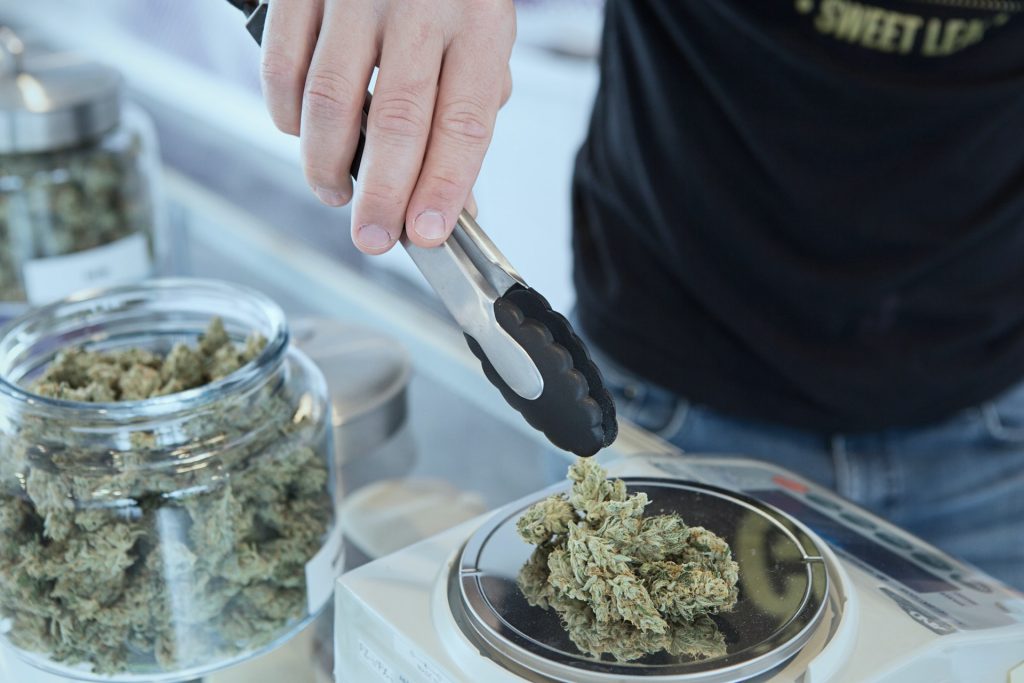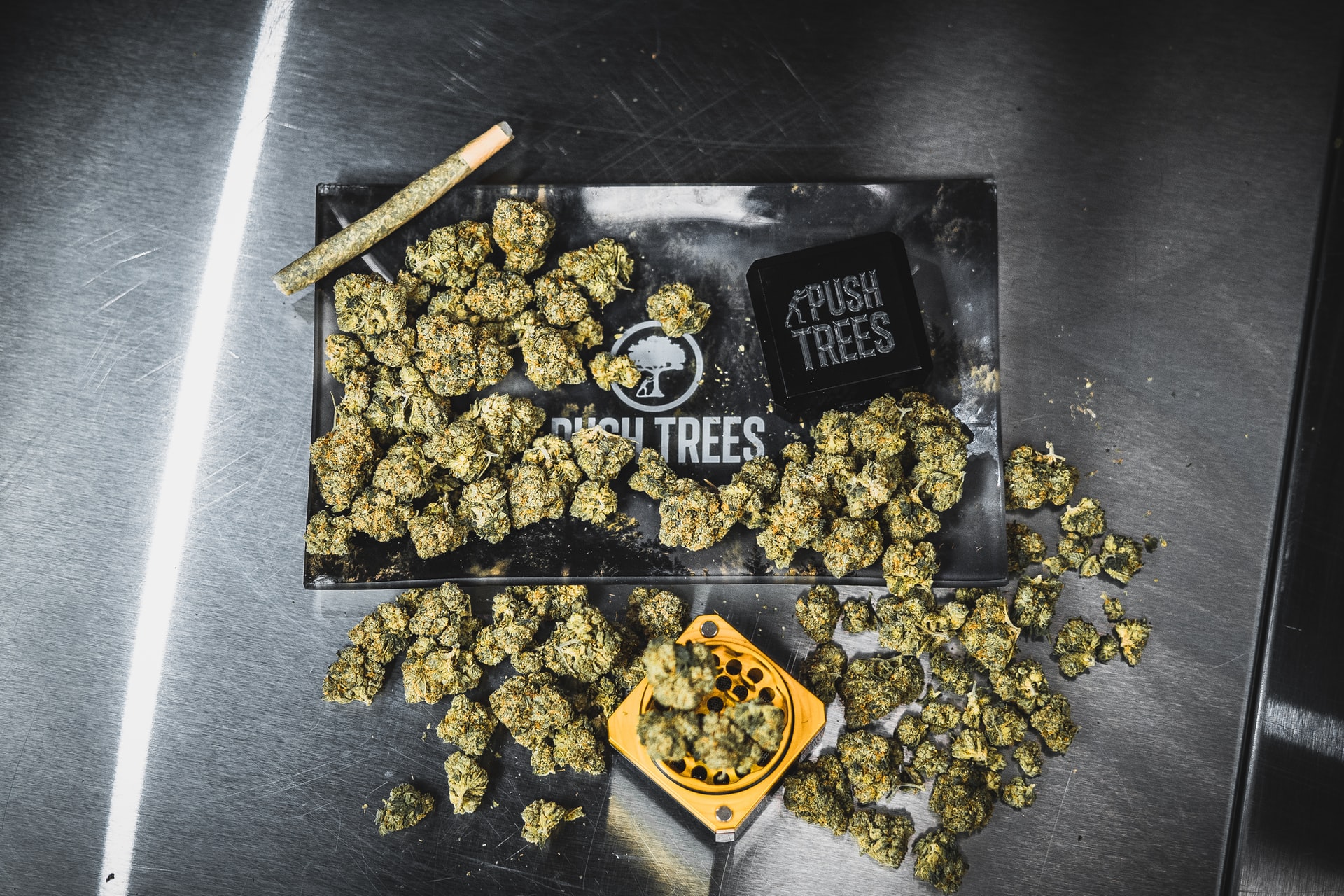Small Guide For Marijuana Dispensary

The recent legalization of marijuana in a number of states has been a once-in-a-generation event. States that have legalized recreational and medical marijuana have created a new business that individuals are eager to participate in.
This article might help you navigate the essential steps if you’re one of the numerous entrepreneurs interested in launching a marijuana dispensary.
Mitch Woolhiser, owner of Northern Lights Cannabis Company in Denver, Colorado, and Lincoln Fish, CEO of OutCo Labs, which oversees the dispensary Outliers Collective in San Diego, California, were the two dispensary owners we spoke with. While the specifics of their experiences differed, they both agreed that opening a dispensary was not for the faint of heart. It is a business that requires a great deal of effort and time to become profitable.
“It’s one of the most difficult things you can accomplish,” Mitch Woolhiser adds. “It can’t just be a good time.” It’s something that needs to be addressed seriously.” In addition to a lot of effort, operating a dispensary necessitates strict adherence to laws and regulations, as well as a significant amount of initial capital. “If you don’t follow these principles, you won’t make any money,” Lincoln Fish explains. “Running a business is expensive.”
But if the prospect of hard work, up-front cash, and bureaucratic red tape doesn’t deter you, operating a dispensary offers a chance to be a pioneer in what will soon be a big, national industry. According to Marijuana Business Daily, dispensaries and retail establishments would produce between $6.5 and $8 billion in income by 2019.
“Considering the federal illegality of it,” Mitch continues, “it’s still at the ground level of the whole thing.” “There’s still time to get in.”
 Step 1: Determine your level of commitment and eligibility.
Step 1: Determine your level of commitment and eligibility.
Lincoln Fish entered to buy weed online sector in order to confront hypocrisy.
“I was with the majority of the people. “I thought to myself, ‘These are drugs, this is horrible,'” says Lincoln. “After that, you realize how much hypocrisy surrounds marijuana.” Tobacco and alcohol are significantly more harmful and addictive. By legal definition, Schedule 1 narcotics are highly addictive, have been demonstrated to have no therapeutic advantages, and can be deadly. Marijuana does not fit any of these criteria, although alcohol and cigarettes do.”
In 2010, Mitch Woolhiser spotted a fantastic and uncommon business opportunity in the nascent marijuana sector. “This is almost revolutionary in terms of what you can accomplish as a businessperson,” he says. “This is a once-in-a-lifetime opportunity.” What product becomes legal for the first time in a long time? Something like this hasn’t happened since prohibition, and it’s unlikely to happen again in my lifetime.”
However, both Mitch and Lincoln advise against creating a dispensary merely for the purpose of profit. “You’re not going to have a nice time if the main reason you’re getting into this is for the money,” Mitch explains. “This isn’t a get-rich-quick scam,” says the author. It’s going to be a lengthy game. You need something extra to keep you going.”
It’s also worth noting that background checks are frequently necessary, not only for dispensary owners, but also for investors and staff. You may not be able to start a dispensary if you have a criminal record.
Furthermore, if medicinal marijuana is not legalized in your state, any dispensary could face federal government closure. Opening a dispensary if there are no current laws or regulations in your area is usually not a wise idea. “If the city or county hasn’t enacted anything, then the state’s default view is that there isn’t anything lawful there,” Lincoln explains. “You must exercise extreme caution. That might be an issue. It’s possible that you’ll be turned off.”
Considering the amount of money it will cost to create a dispensary, operating one illegally is not worth the danger.
Step two is to conduct research.
Legislation and regulations abound in the dispensary industry. Even deciding how you’ll accept payments as a cannabis business, for example, is a hard matter to which you’ll want to give a lot of attention.
To be a successful dispensary owner, you must be familiar with not just current marijuana production and sales rules, but also prospective legislation and changes that will take effect in the coming years.
Lincoln Fish suggests reading the Cole Memorandum, which advises state prosecutors in the United States on how to prioritize marijuana law enforcement. He also suggests reading Proposition 215 and Proposition 420 if you live in California.
“It’s quite easy to investigate and understand what the legislation is in most cities and counties,” Lincoln explains. “Either it’s outright prohibited, or they’ve already issued ordinances and guidance.”
The National Organization for the Reform of Marijuana Legislation, or NORML, maintains a database of state-by-state marijuana laws and punishments. Also useful are these tables from the National Conference of State Legislatures.
“There are a lot of rules to follow, and I would strongly suggest individuals to hire a lawyer and a CPA straight once,” Lincoln says. This will assist you in adhering to the law and obtaining permissions and licenses. NORML maintains a listing of marijuana-related attorneys from across the country.
Both Mitch and Lincoln advise a thorough examination of U.S. Statute 280E, a complex tax code that can catch dispensary operators off guard, particularly when it comes to budgeting.
“You can only deduct the cost of items sold from your revenue before you complete your taxes if you’re dealing with a Schedule I narcotic, which marijuana is,” Lincoln explains. “Let’s say you buy a $500 product, put it on the shelf, and sell it for $1000. Before you can deduct your rent, staff, and other expenses, you must pay taxes on the $500 profit. Many dispensaries are being slammed with astronomical tax bills. Another reason why starting a dispensary isn’t always as profitable as many believe.”
Step 3: Look for a rental property to rent.
“Finding a compliant property is really the key,” Lincoln explains. A compliance property in San Diego must meet a number of criteria, according to Lincoln: “It must be more than 1000 feet from a church, 1000 feet from a school, 1000 feet from a residential zone, and 1000 feet from another compliant property.” “There’s a map online that shows all the compliant properties in San Diego County.”
It’s vital to keep in mind that, due to the ever-changing marijuana market, a property that is compliant now may not be in two years. “When you do access a property, make sure it complies with new legislation that go into force in 2017, 2018,” Lincoln advises. “Be careful not to open one and have it shut down because it violates the current legislation.”
Even if you find a compliant location, you must be honest with the landlord about your plans to create a dispensary there, and they may or may not be helpful. Mitch Woolhiser had to deal with this while he was looking for a location for his dispensary in 2010. “Some landlords simply refused to deal with it and continue to refuse,” Mitch says. “Some of that is due to federal illegality and the potential for liability.”
Law enforcement officers can put pressure on landlords. The DEA forced out Mother Earth Collective, which used to operate in the space that is now Outliers Collective in San Diego. “The DEA wrote to landlords around the country, saying, ‘Hey, if we decide to go after these folks, you might be held accountable if you’re renting to them.’ “The collective was forced to close after the landlord evicted them,” Lincoln explains.
Consider whether the location is convenient for potential clients while looking for a location to open your dispensary. “For store planning considerations, location is the most crucial thing,” Mitch explains. “People come to you because you’re a tourist spot or because you’re close.” Choosing a good location for your store can be aided by identifying a target market.
It’s also critical that the most, if not all, residents of your community (even non-users who won’t be your customers) are at ease with the presence of a dispensary in their neighborhood. Mitch recommends examining ballot results for any location where you are considering a property if your county or city has had ballot proposals on marijuana laws.
“We had a vote in 2012 in Colorado on Amendment 64, which is the recreational law,” he explains. “I received the election results for Edgewater [where Northern Lights Cannabis Company is located] from the Secretary of State’s website.” It received a 70% approval rating in Edgewater. You can get that knowledge from another community. You may look up the results of those ballot issues and assess whether the community will be welcoming or not based on that information.”
If you’re looking to buy marijuana-friendly property, 420 Property is a great place to start.
 Writing a business strategy is the fourth step.
Writing a business strategy is the fourth step.
It’s even more crucial to appear competent and prepared with a good business plan when a sector is saturated like the medicinal marijuana industry.
Mitch, who used Bplans to build his dispensary business plan in 2010, believes that having a business plan sets you apart from the competition. He advises, “Write a business strategy.” “A lot of individuals get into this business and aren’t very serious about it.” Understand what you’re getting yourself into, and don’t just listen to someone from afar.”
Obtain capital
Any effective business strategy will begin with how to obtain finance, which is one of the most difficult aspects of the marijuana market due to the large amount required.
“The obstacles to entry are still rather high,” Mitch explains. “It’ll cost a lot more money than it did before.” We put around $50,000 into it and used some credit cards to get started. Because of the regulations, you wouldn’t be able to break into it without at least a half-million dollars. In addition, there is a lot of competition.”
You can’t receive a bank loan for a dispensary because marijuana is banned on the federal level. For your initial capital, Lincoln advises sticking to personal funds. “Right now, you’re better off concentrating on angel investors, friends, and family to get to the point where you can acquire a house,” Lincoln advises. “A lot of investors aren’t going to talk to you until you’ve put together a lot of the components.” It’s a lot easier if you have a conforming property.”
Make a financial plan.
A clear, succinct budget is another factor to consider in your company strategy.
“You have to make a budget and include in 280E,” Lincoln explains. “You won’t be able to pull it off on a shoestring budget.” You should expect it to take a long time to grow.”
To find out how much things cost, talk to wholesalers in your area. “You need to know your costs as far as what it will cost to get the product for the business plan itself,” Mitch explains.
- Aside from the price of the goods, there are a few other factors to consider while planning your budget:
- The price of rent
- The cost of a license is the amount for submitting an application for a license.
- Salary of employees
- Product security during transportation and storage
- Examine the competition.
In addition to being aware of the permitted competition in your area, opening a dispensary necessitates consideration of a different type of competitor that poses a greater challenge: unauthorized operations.
“Understand the landscape of unauthorized competition in that area,” Lincoln advises. “How is law enforcement dealing with it, or planning to deal with it?” The truth is that the unlicensed are permitted to run amok. Law enforcement is working to shut them down, but it isn’t a top priority because they haven’t been able to obtain any convictions.”
Look for dispensary adverts in local periodicals, both brick-and-mortar and delivery. This can give you an indication of who is operating without a license in your region. Additionally, look for local criminal busts involving unauthorized businesses. Is it legal for unlicensed dispensaries to operate, or is law enforcement attempting to shut them down? This information will be useful in developing your business plan.
“It’s very difficult to create a patient base when you have folks next door who are open 24/7, which you won’t be able to do,” Lincoln adds. “They aren’t paying taxes or social security for their employees, and they aren’t paying federal taxes.” “You’ll die from that.” You must follow the rules, which they do not.”
Perform market research
Your company strategy gives you a great opportunity to figure out who your consumers are. This will aid in the development of your dispensary’s marketing and pricing strategy. “Know your market,” Lincoln advises. “Be aware of your demographic and psychographic characteristics. Is there a market for it? What happened to it? This will also influence some of your pricing.”
Step 5: Obtain a license
Obtaining a license to operate a medical marijuana dispensary is frequently time-consuming and costly. “I’ve known people who paid upwards of $3,000 to $4,000 in legal fees to receive their driver’s license,” Lincoln says. The application price for a medical marijuana store in Colorado, for example, might be as high as $15,000.
“Be prepared to devote a significant amount of time and resources to compliance,” Mitch advises. “There has been a lot of consolidation here since a lot of the smaller enterprises can’t keep up with the compliance.” It is a full-time position.”
Take a peek at Colorado’s Retail and Medical Marijuana License Application Process to get a sense of what yours will be like.
Step 6: Obtain the product
Obtaining a good product for your marijuana shop, as well as ensuring that you do so legally, will be critical to its success. Many shops produce their own marijuana, which is required in some states. Mitch Woolhiser of Northern Lights Cannabis Company has his own cultivation facility, which he believes should be on the horizon for any dispensary owner.
“Start with a retail location and work your way up to having your own cultivation facility,” he advises. “Use wholesale merchandise to get retail off the ground. That’s something I’d suggest.”
You don’t have to offer marijuana in its traditional form when you open a dispensary. Edibles, oils, dabs, and concentrates are popular among patients. Mitch claims that vendors of these types of marijuana are easy to locate and deal with. “Those corporations have sales forces when it comes to edibles and concentrates,” he explains. “All you have to do is reach out to them and make contact.”
A list of wholesale medical marijuana providers can be found in the resources section at the conclusion of this page.
 Step 7: Promote your marijuana dispensary.
Step 7: Promote your marijuana dispensary.
Decide what makes your dispensary stand out and market it.
“You can compete on pricing or other factors, and I selected the latter,” Mitch explains. “We’re attempting to be more boutique.” For us, you get to ask all the questions, smell and examine each type before deciding which to buy. It creates a more distinctive purchasing experience.”
Outliers Collective advertises to a more adult demographic as well. “We’re searching for clients that will stay with us for a long time because they value our service, quality, and consistency,” Lincoln adds. “We want to reach out to a different type of patient, one who is concerned about all of the things that a licensed facility represents,” she says.
Some of your marketing decisions will be influenced by your target demographic, but Lincoln thinks there are a few must-haves for promoting your new dispensary. He explains, “You have to be on Weed Maps and Leafly.” Patients can use apps like Weed Maps and Leafly to look for dispensaries in their neighborhood. Lincoln also has a billboard on California State Route 67 and advertises in magazines.
Mitch suggests using Instagram for marketing, encouraging customers to leave Google reviews, and keeping your website up to date with good SEO methods.
It’s also a good idea to look into the rules for marketing your dispensary. Mitch is unable to employ a number of techniques in Colorado, including: He claims that “you can’t advertise on the radio, TV, or billboard.” “There are numerous limitations. You can’t market to folks who live outside of your state. You’re not allowed to use pop-up adverts.”
Mitch and Lincoln both employ loyalty programs to help spread the word about their dispensaries; a program that rewards clients with store credit when they suggest a new customer will help you grow your customer base.
Keep yourself updated.
You have a decent chance of starting a successful and profitable dispensary if you use this advice.
“I would want to see more responsible, respectable folks go into our area and establish up dispensaries and do a good job with it,” says Lincoln Fish, who urges those with the appropriate incentives to join the relatively nascent medical marijuana market. “The more we demonstrate to the general public how vital this is, how responsible we can be, and how successfully we can do it, the more public opinion will turn in our favor.”
Because marijuana laws change frequently, it’s critical to stay up to date on new information even after you’ve opened your dispensary to guarantee you’re operating safely and legally. For more information, see the sites listed below.





